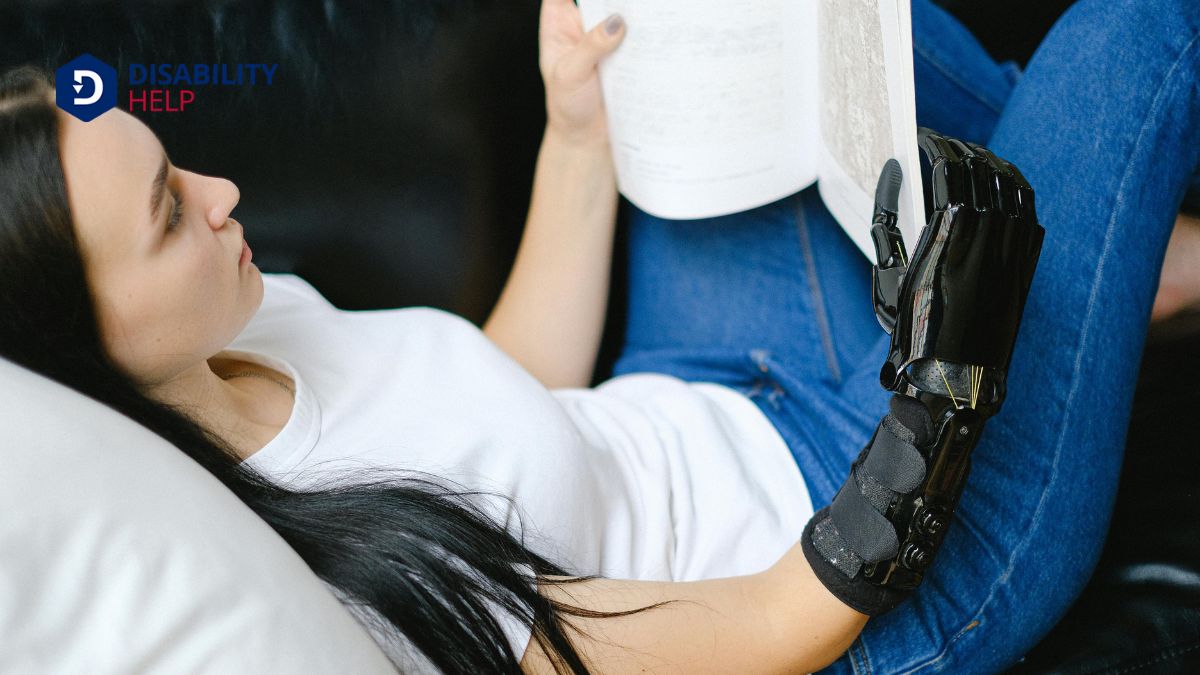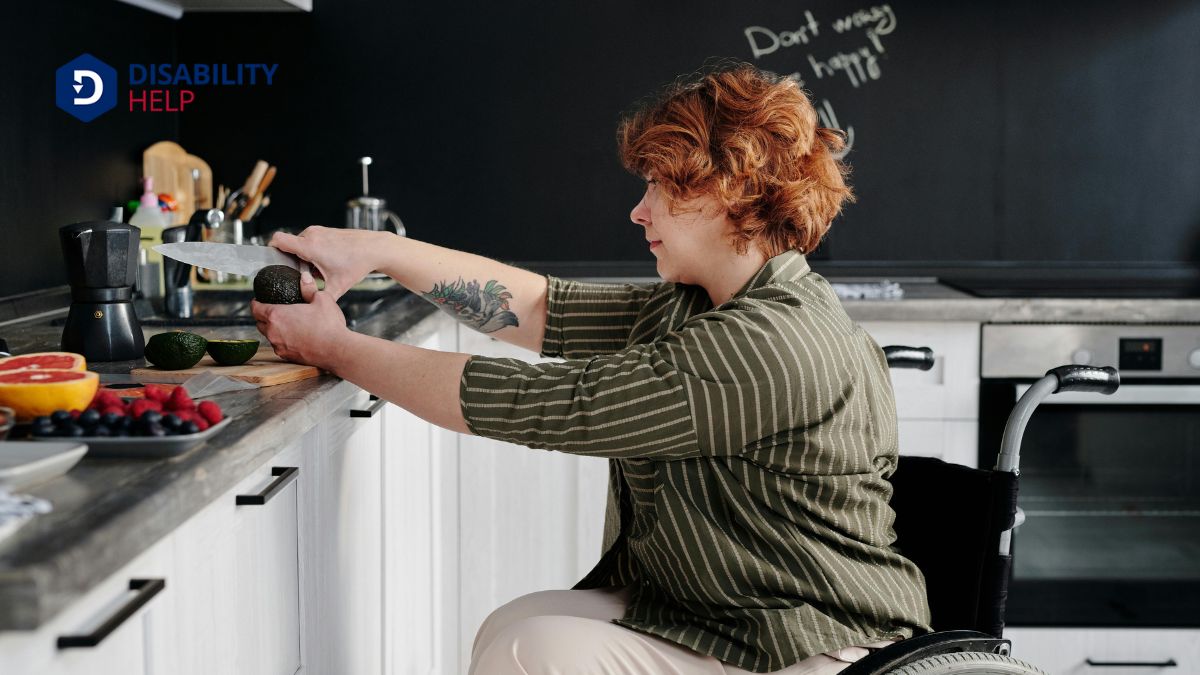Community programs are essential for disabled individuals as they foster social interaction, mental well-being, and skill development. By participating in these activities, individuals can improve their cognitive and emotional health, reduce feelings of loneliness, and build self-esteem and confidence. These programs also offer tailored learning opportunities and inclusive environments that promote mutual respect. Physical activities within these programs enhance fitness and mobility, leading to greater independence. Additionally, community involvement teaches acceptance and compassion, enriching the community as a whole. As we delve deeper, we'll uncover more about the broad benefits these programs offer.
Key Takeaways
- Community programs enhance social interaction and emotional well-being for disabled individuals.
- Participation in community activities reduces loneliness and depressionA mental health condition marked by persistent feelings of sadness and loss of interest..
- Tailored activities in community programs aid in skill development and personal growth.
- Engaging in community programs builds self-esteem and confidence through achievement.
- Accessible physical activities in community programs improve health and mobility.
Importance of Social Interaction
Social interaction forms the backbone of our daily lives and well-being, and it's even more important for individuals with disabilities. When we look at the significance of social interaction, we see how it profoundly impacts our health and overall happiness. For people with disabilities, engaging in community activities isn't just beneficial; it's necessary. These interactions help enhance cognitive and emotional well-being and provide a sense of belonging.
Community integration is crucial because it helps develop social skills, which are essential for personal and professional growth. When we include people with disabilities in community programs, we foster an environment of InclusionThe practice of creating environments in which any individual or group can be and feel welcomed, res..., promoting equality and understanding. These programs offer opportunities for learning and skill development, which are crucial for boosting self-esteem and confidence.
Moreover, participating in community activities helps prevent isolation, a common challenge faced by many individuals with disabilities. By encouraging active involvement, we create a supportive network that ensures everyone feels valued and included.
Community engagement isn't just about being present; it's about being an integral part of the social fabric. Let's commit to creating inclusive spaces that enrich the lives of all community members, including those with disabilities.
Mental and Emotional Well-Being

Understanding the significance of social interaction naturally leads us to ponder its profound effects on mental and emotional well-being. Community programs play a significant role in shaping the mental health of individuals with disabilities. When we participate in these activities, we experience vital social interaction that reduces feelings of loneliness and depression. This engagement fosters a sense of belonging, creating a supportive environment that enhances emotional well-being.
Moreover, the consistent social interaction offered by community programs can greatly improve our cognitive function. Inclusive community outings provide stimulating experiences that keep our minds active and engaged. This, in turn, promotes emotional stability and overall mental health.
Additionally, being part of a community boosts our self-esteem and confidence. When we engage in activities and achieve small milestones, it reinforces our sense of accomplishment. This positive feedback loop is essential for maintaining high self-esteem and emotional well-being.
Community programs offer more than just social interaction; they provide a lifeline for our mental and emotional health. By reducing loneliness and depression, enhancing cognitive function, and boosting self-esteem, these programs ensure we lead fulfilling and emotionally stable lives.
Enhanced Learning Opportunities
Enhanced learning opportunities in community programs provide unique educational experiences for individuals with disabilities. These programs are designed not only to educate but also to engage participants through a variety of activities that enhance cognitive function and overall well-being. By being part of inclusive environments, individuals can develop essential skills and experience personal growth.
One of the key benefits of these programs is the focus on skill development, which is vital for our community members with disabilities. The activities are crafted to be both educational and enjoyable, making learning a more enriching experience.
Additionally, the presence of diverse participants fosters mutual respect and understanding, which is invaluable for everyone's growth.
Here are some highlights of what these programs offer:
- Skills development: Tailored activities help participants acquire new abilities and refine existing ones.
- Cognitive function: Engaging activities stimulate mental processes, enhancing cognitive abilities.
- Mutual respect: Inclusive environments promote understanding and respect among all participants.
- Personal growth: Opportunities for self-improvement and development abound.
- Overall well-being: The combination of physical and educational activities boosts overall health and happiness.
Building Self-Esteem and Confidence
Building self-esteem and confidence is a cornerstone of community programs for individuals with disabilities. When we participate in these programs, we set and achieve goals that increase our self-esteem. Mastering new skills and reaching personal milestones in various activities is a significant confidence booster. Each small achievement contributes to a positive self-image and a sense of empowermentThe process of gaining control, authority, and power over one’s life, often used in the context of....
Community programs offer a supportive environment where we can celebrate our achievements, no matter how small. These experiences aren't just about the immediate skills we gain. They help foster independence, allowing us to take on new challenges both within and outside the community setting.
For many of us, this empowerment translates into a more confident approach to everyday life.
Furthermore, the empowerment gained from community engagement fosters a positive self-image. We become more aware of our capabilities and less focused on our limitations. This shift in perspective is essential, as it impacts other areas of our lives, enhancing our overall well-being.
In essence, community programs play a crucial role in building self-esteem and confidence, empowering us to achieve our personal milestones and fostering a robust sense of independence.
Accessible Physical Activities
Accessible physical activities in community programs aren't just about exercise; they're about fostering holistic well-being for individuals with disabilities. These programs play a pivotal role in enhancing physical health, mental well-being, and overall quality of life. By participating in activities like biking, swimming, and hiking, individuals with disabilities can improve their independence and mobility and reduce the risk of chronic diseases.
Accessible programs like those offered by All Kids Bike and the Strider Education Foundation champion inclusive educationEducational practices that integrate students with disabilities into general education classrooms, s... through accessible bike riding, promoting physical and mental well-being. Outdoor recreation opportunities empower participants to engage in activities that boost confidence and overall well-being.
Here are some of the benefits of accessible physical activities:
- Improved physical health: Regular exercise helps in enhancing cardiovascular health and overall fitness.
- Boosted mental well-being: Physical activities reduce stress, anxiety, and depression.
- Enhanced independence: Improved mobility allows for greater self-reliance.
- Reduced risk of chronic diseases: Active lifestyles help in preventing conditions like diabetesA chronic condition where the body cannot produce or properly use insulin, leading to high blood sug... and heart disease.
- Increased confidence: Successfully participating in physical activities builds self-esteem and confidence.
Community programs that focus on accessible physical activities provide essential avenues for individuals with disabilities to enjoy recreation, improve balance, and promote holistic well-being.
Role of Community Inclusion

While accessible physical activities greatly contribute to the well-being of individuals with disabilities, community inclusionThe practice of ensuring that individuals with disabilities are fully integrated and involved in all... also plays a pivotal role in their overall quality of life. It promotes equal participation in society, which is essential for personal growth and improved coping skills. By actively engaging in community activities, individuals with disabilities showcase their unique skills and talents, enriching the community with fresh perspectives.
Legislation like The Rehabilitation Act of 1973A U.S. law that prohibits discrimination based on disability in federal programs and services, inclu... and The ADA of 1990 emphasizes the importance of community inclusion. These laws guarantee that individuals with disabilities have the same opportunities for community involvement as anyone else.
The benefits of community inclusion are immense—not just for those directly involved but for society as a whole. It teaches acceptance, humility, and compassion, fostering a more inclusive and understanding community.
Human services professionals consistently emphasize the positive outcomes of community inclusion. When we recognize the unique talents individuals with disabilities bring to the table, we create a richer, more diverse environment.
The importance of community can't be exaggerated; it provides a platform for everyone to thrive, learn, and grow together. Let's continue to support and promote community inclusion for a better, more inclusive future.
Overcoming Barriers to Integration
Overcoming obstacles to integration for disabled individuals requires a multifaceted approach. We need to address both practical barriers and personal development to guarantee community integration. Real-life skills training is vital in enhancing independence and self-sufficiency. Identifying strengths, interests, and areas for personal growth helps disabled individuals navigate and conquer these obstacles effectively.
Self-assertiveness is another key component. It empowers individuals to voice their needs and rights, playing a critical role in advancing their integration into the community. Professional support from occupational therapists and care managers can't be underestimated. These professionals provide tailored assistance, modify environments, and help develop unique skills necessary for successful integration.
Here are some essential steps in overcoming these barriers:
- Address practical obstacles like transportation and funding to ensure accessibilityThe design of products, devices, services, or environments to be usable by people with disabilities.....
- Provide real-life skills training to enhance independence and self-sufficiency.
- Focus on personal growth by identifying strengths, interests, and development areas.
- Encourage self-assertiveness to empower individuals to voice their needs and rights.
- Offer professional support from occupational therapists and care managers for personalized assistance.
Frequently Asked Questions
Why Are Programs for the Disabled Important?
Programs for the disabled are important because they offer social interaction, reduce loneliness, and improve mental health. They help us learn new skills, build confidence, and foster a sense of belonging and inclusivity in the community.
What Are the Benefits of Community Integration for Individuals With Disabilities?
Community integration for individuals with disabilities promotes social interaction, mental well-being, and physical health. We see enhanced cognitive and emotional well-being, reduced loneliness, and boosted self-esteem through learning opportunities and accessible physical activity programs.
Why Is It Important to Include Disabled People in Society?
We must include disabled people in society because it fosters diversityThe inclusion of individuals from a wide range of backgrounds, including people with disabilities., acceptance, and compassion. It allows everyone to develop social skills and confidence, promoting a sense of belonging and enriching our community with unique perspectives and talents.
Why Is It Important to Support Individuals With Disabilities?
We need to support individuals with disabilities because it enhances their quality of life, fosters independence, and reduces isolation. By providing necessary assistance, we guarantee they feel valued and empowered, contributing positively to our community.
Conclusion
To sum up, we can't overstate the value of community programs for disabled individuals. These initiatives foster social interaction, boost mental and emotional well-being, and offer enhanced learning opportunities. They help build self-esteem and confidence while ensuring accessible physical activities. By promoting community inclusion, we break down barriers to integration. Let's support and expand these programs to create a more inclusive and supportive environment for everyone. Together, we can make a difference.






